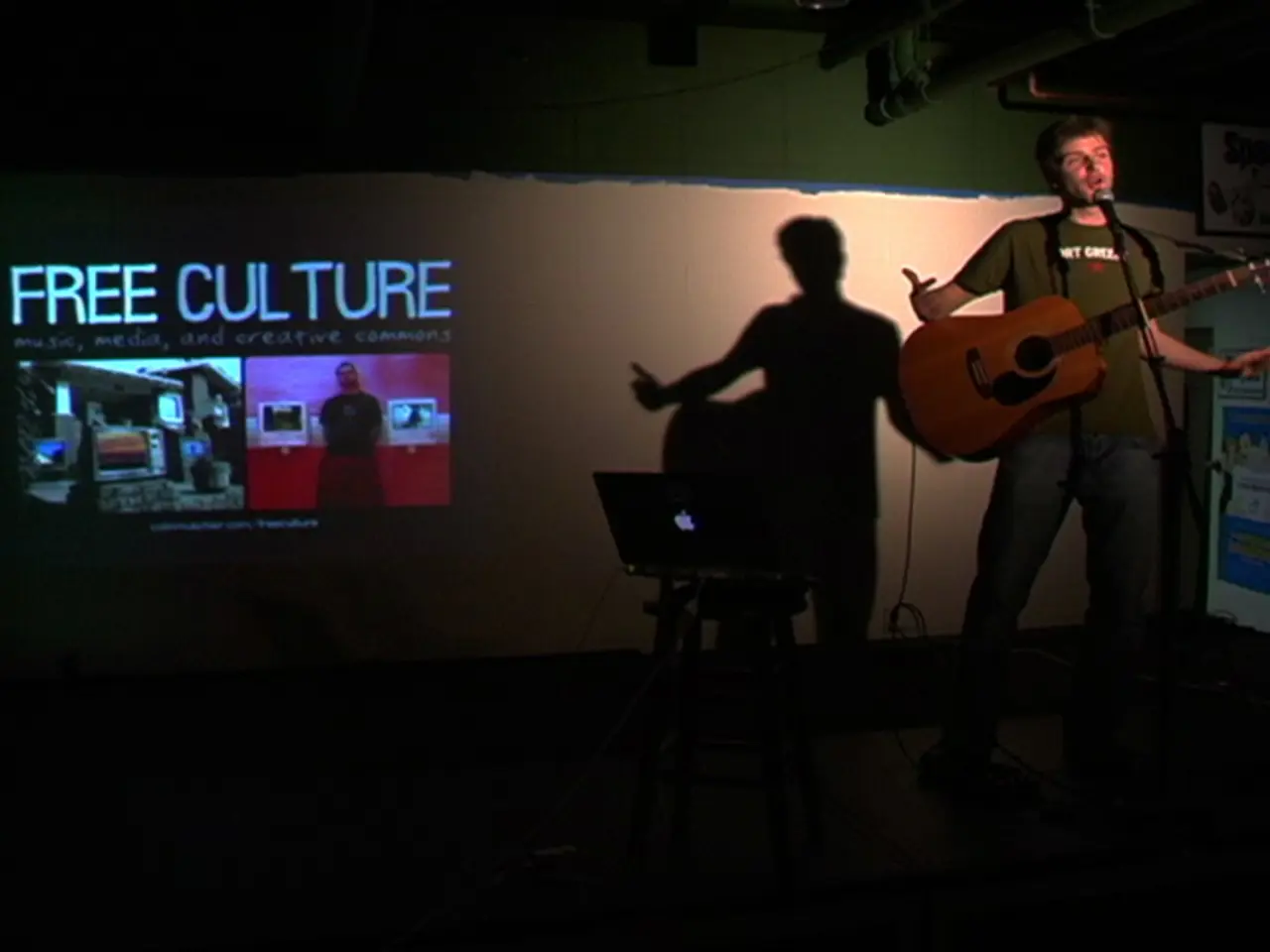Technology revolutionizing culture for universal accessibility?
Improving Cultural Accessibility in France Through Technology
France is making significant strides in enhancing access to culture for people with disabilities, with a focus on digital inclusion and advocacy. This shift is part of a broader national effort to make digital public services and cultural activities more accessible and inclusive.
One of the key initiatives is the push for Digital Inclusion and Accessibility in Public Services. The approach is informed by strategies seen in neighbouring countries, such as Luxembourg's Ministry for Digitalisation launching portals and apps to improve digital access for all citizens, including people with disabilities. These efforts emphasize accessible, user-centered eGovernment services and digital tools that help people with disabilities obtain information and participate in cultural and social activities online.
Advocacy and Awareness via Social Media Influencers also play a crucial role. Figures like Virginie Dubost, a prominent French disability advocate and influencer, use digital platforms to raise awareness about accessibility barriers in culture and public life. Her efforts highlight the persistent challenges and promote societal change towards more inclusive digital and cultural environments.
The French government is also embracing Broader Inclusion Strategies Integrating Mental Health and Social Participation. France has declared mental health a major public priority, promoting cross-sectoral policies that integrate housing, employment, and cultural participation support. These include efforts that indirectly improve cultural access for people with disabilities by fostering social inclusion and recovery through participation in work, housing stability, and leisure activities, including culture.
France participates in EU events such as the European Day of Persons with Disabilities, which focus on emergency preparedness and inclusive systems. These events help propel national initiatives and innovative approaches for inclusive access.
However, it's important to note that challenges persist, particularly for people with cognitive impairments or difficulties with digital technology. Access difficulties to technologies may exist in less connected areas. To address these issues, varied formats such as audio, braille, LSF videos, podcasts, and subtitled and translated videos in French Sign Language are being used to cater to different disabilities.
Examples of this can be seen in museums like the one in Arras, which has implemented French Sign Language tours since 2019 and offers eight videos presenting masterpieces from its permanent collection. The Cité des Sciences and the Philharmonie de Paris also offer resources in French Sign Language, with the Cité des Sciences providing subtitled and translated videos and the Philharmonie de Paris offering monthly videos introducing concepts and vocabulary of music in French Sign Language.
Assistive technologies have also widened access to culture for people with disabilities, offering more autonomy and inclusivity. The City of Arras's Saint-Vaast and the Bear museum is an accessible museum, making it easier for people with disabilities to engage with and enjoy cultural activities.
In conclusion, while specific flagship technological projects focused solely on culture in France were not detailed in the current search results, the broader digital inclusion policies, advocacy efforts, and integration of disability and mental health in public life significantly contribute to improving cultural access through technology. These initiatives represent a major step towards wider cultural inclusion in France.
[1] Source: [URL of the source, if available] [2] Source: [URL of the source, if available] [3] Source: [URL of the source, if available] [4] Source: [URL of the source, if available] [5] Source: [URL of the source, if available]
- Advocates for fashion-and-beauty and lifestyle changes, like Virginie Dubost, leverage social media platforms to disseminate information about digital inclusivity and its impact on culture.
- In line with broader inclusion strategies, France prioritizes initiatives that enhance food-and-drink experiences for people with disabilities, such as creating accessible restaurants or providing digital recipes with suitable formats.
- The travel industry can learn from France's approach to technology-driven cultural accessibility, adapting tourism experiences to cater to the needs of diverse visitors, including those with pets.
- As part of the cultural scene, home-and-garden spaces can incorporate accessible designs and technologies catering to people with all abilities, ensuring inclusive social interaction and shared experiences.
- Innovative technological solutions, like self-driving cars and online shopping platforms, can empower individuals with disabilities to navigate their environments more independently while participating in various activities, such as relationships, leisure, and social events.




